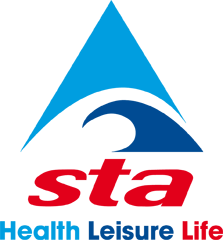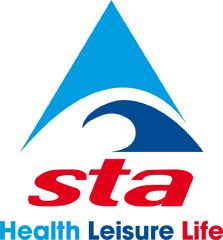This document consists of:
Terms of Membership
Membership of STA
- The Board shall set the categories of membership and shall determine their rights and obligations.
- The Board of STA may in its absolute discretion create new categories of membership and determine their rights and obligations or alter or remove existing categories of membership.
- The requirements for admission to any category membership shall be set by the Board from time to time.
- Applications for membership shall be made to STA whose Board shall have absolute discretion to accept or refuse any applications. The Board shall not be obliged to notify individuals as to the reasons for refusal of membership.
- A person who has been convicted of an offence anywhere in the world which, in the Board’s discretion, is considered equivalent to an offence under Part 1 of the Sex Offenders Act 1997 (Sexual Offence) shall not be eligible to be a member.
- A member must notify STA if at any time they are investigated by the police, or any regulatory authority anywhere in the world, with regard to the committing of a Sexual Offence or are convicted of committing a Sexual Offence.
- Any annual members’ subscriptions are required to be paid annually in advance. The amount and dates for payment of subscriptions may be varied by the Board from time to time.
- In becoming a member, an individual agrees to abide by these Membership Terms and Conditions, including the Code of Ethics and Professional Conduct and agrees to abide by any amendments which are notified to the members generally through notice on the website or any membership publication. Members are also advised to read STA’s Articles of Association which is the governing document of STA.
Disqualification and Removal of Members
- An individual may resign from membership at any time.
- An individual shall automatically be removed from membership, and cease to hold any member rights, without any requirement for notification where:
- They are convicted of a Sexual Offence; or
- They have not paid their membership subscription by the date it is due.
- The Board may, in its absolute discretion, remove an individual from membership at any time and shall notify the individual in writing of that fact. The Board shall be under no obligation to inform the individual of the reason for the removal, but this may include (but is not limited to) a situation where:
- The individual is investigated by the police, or any regulatory authority anywhere in the world, with regard to the committing of a Sexual Offence.
- The individual provides false, misleading or incomplete information to the Board, either prior to or during the individual’s period of membership.
- The individual is, in the Board’s opinion, acting in a way which is contrary to these Membership Terms and Conditions, including the Code of Ethics and Professional Conduct and the Safeguarding & Protecting Children Procedures.
- The individual is, in the Board’s opinion, involved in behaviour which is contrary to the interests of STA or its beneficiaries or which could be regarded as bringing STA into disrepute.
- Any conduct by a member which could lead to their removal should be reported to the Chief Executive of STA.
- The Board may suspend membership prior to making a decision as to whether or not that membership should be terminated, and the Board will suspend membership where there any potential concerns of a breach of the Safeguarding & Protecting Children Procedures.
- The Board may at a later date reinstate an individual whose membership has previously been suspended or terminated, unless the matter concerned a breach of the Safeguarding & Protecting Children Procedures in which case the termination of membership shall be permanent.
- An individual who resigns or ceases to be a member for any reason shall not refer to themselves as a member of STA and shall not imply any association between the individual and STA.
- Where an individual resigns from membership for any reason, any subscriptions which have been paid in advance to STA shall not be refunded.
- Where an individual is removed from membership for any reason, any subscriptions which have been paid in advance to STA shall be refunded.
Data Protection
- Members’ data shall be processed in accordance with STA’s Privacy Policy, a copy of which has been provided to you and is available on request.
Code of Ethics and Professional Conduct
Safety
- The paramount consideration of all members at all time is safety:
- Safety of pupils/candidates/learners.
- Safety of clients.
- Safety of the general public.
- Safety of the member.
- Members must ensure that all reasonable steps are taken to provide a safe environment and all activities are in accordance with the appropriate regulations, or best practice if there are no regulations, and be appropriate for the age, experience and ability of the participants.
General
- Members must respect the rights, dignity and worth of every person and treat everyone accordingly at all times.
- Members must abide by the Equal Opportunities Policy of the Association; The Swimming Teachers’ Association will not condone or permit harassment or discrimination on the grounds of sex, race, colour, nationality, national or ethnic origin, marital status, sexual orientation, age, disability, political or religious belief.
- Child abuse is a criminal act, which will not be tolerated by the Association. Members should be fully aware of and abide by the child protection procedures set out in STA’s Safeguarding and Child Protection Policy (as updated from time to time).
- Members, when acting in a professional capacity, must display the highest standards of behaviour and appearance and must adhere to all STA policies (as updated from time to time).
- Members inevitably gather a great deal of personal information about pupils/candidates/learners in the course of a working relationship. Member and pupil/candidate/learner must reach agreement as to what is regarded as confidential information, i.e. not divulged to a third party without the express approval of the pupil/candidate/learner. Confidentiality does not preclude the disclosure of information where the Member is in an alleged breach of this Code of Ethics.
- Advertising by members in respect of qualifications or services shall be accurate and professionally restrained and shall not display affiliation with an organisation that falsely implies sponsorship or accreditation by that organisation.
- Members should refrain from public criticism of fellow Members, differences of opinion should be dealt with on a personal basis and more serious disputes should be referred to the STA.
- Members should not act in a way which is contrary to the interests of STA or the pupils/candidates/learners or which could be regarded as bringing STA into disrepute.
- Members should regularly seek ways of increasing their professional development and self-awareness, should welcome evaluation of their work by colleagues and be able to account to pupils, candidates, learners, employers and colleagues for their actions.
- Members should only act within their qualification.
- Members should ensure that they have adequate Public Liability insurance. Fully paid up members are insured by the Association provided that they act within their qualification; if a member acts outside their qualification they may not be covered for insurance.
- All members who work with children or vulnerable adults must obtain a DBS clearance. Many employers provide clearance as part of the employment process. If you are not DBS checked by your employer the STA can provide a DBS clearance; subject to DBS regulations and payment of the relevant fee.
- All members who employ staff to work with children or vulnerable adults must obtain a DBS clearance for their staff.
- Access to Standard, Enhanced, and Enhanced with Barred List(s) DBS checks is only available to employers who are entitled by law to ask an individual to reveal their full criminal history, including spent convictions. Members not employed by the STA are therefore not asked to provide evidence of a clear DBS.
In 2.12, 2.13 and 2.14 DBS means Disclosure and Barring Service in England & Wales, Disclosure Scotland in Scotland and Data Protection Unit in Northern Ireland.
Swimming, Lifeguarding, First Aid or Pool Plant (or any other STA discipline) Teachers and Tutors
When acting as teachers or tutors of swimming, lifeguarding, first aid or pool plant (or any other STA discipline):
- Members must place the well being and safety of the pupils/candidates/learners within the class/course above the development of performance. They should follow all guidelines laid down by the governing bodies, Leisure Centres, Local Authorities or such other bodies who control swimming lessons/courses.
- Members must develop an appropriate working relationship with their pupils/candidates/learners, based on mutual trust and respect.
- Members must encourage and guide their pupils/candidates/learners throughout each lesson/course.
- Members, who teach swimming, lifeguarding or first aid must hold a recognised teaching qualification.
- Members must ensure that the activities they direct are appropriate for the age, maturity, experience and ability of the pupils/candidates/learners.
- Members should at the outset, clarify with pupils/candidates/learners (and where appropriate with their guardians), exactly what format the lessons/course will take and what is expected of the pupil/candidate/learner. They should also clarify what fees, if any, are payable.
- Members should co-operate fully with others involved in the lessons/course (e.g. Pool Management, other teachers) in the best interests of the pupil/candidate/learner.
- Members who run training courses under the auspices of the Association must comply with the appropriate rules and regulations of the Association.
- Members who receive fees or other monies from candidates, pupils or learners must keep proper accounts. Any fees collected that are due to the Association must be paid over promptly.

